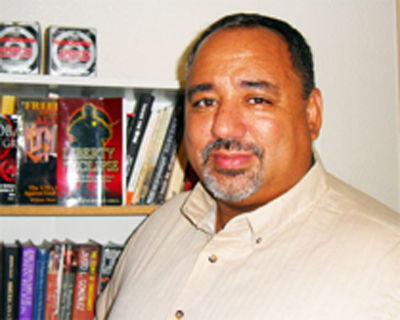The Fatal Embrace, Revisited

While chatting several years ago with my good friend Bob Unger — a talented and passionate man blessed with weapons-grade wit and a total lack of inhibitions in dealing with ignorant people – the conversation turned, as it often does for us, to the subject of Judaism.
An Orthodox Jew from Great Neck, New York, Bob is often given to expressing opinions of Reformed and Liberal Jews that I simply cannot repeat, and find occasionally difficult to listen to. (Imagine a wittier Michael Savage in a really bad mood, and you’ll get some sense of what I’m trying to describe.) As I said, he’s a passionate and uninhibited guy. In any case, Bob was well into the second stanza of his harangue when I tentatively dipped my toe into the topic.
“If I can be permitted to venture a poorly informed opinion,” I began, “which is the only kind I can offer on the subject, it seems to me that the basic problem is that too many Jewish people define their identity with reference to Seinfeld, rather than to Sinai.”
“Yes! That’s it exactly!” Bob replied.
Knowing that by doing so I am slam-dancing where Angels fear to tread, I’d like to expand on that insight – such as it is – by offering the following exercise in defining two kinds of Judaism, as well as Zionism:
Religious (Torah) Judaism is based on the worship of God.
Cultural Judaism is the worship of a collective – the Jewish people, corporately.
Zionism is the worship of a state.
The second category is where we would locate Seinfeld-defined Jewish people. The third category, unfortunately, has almost entirely subsumed the first two. And therein lies the real mortal danger to Jews, and to many millions of other innocent people, since the worship of the state in any form always involves blood sacrifices – and the worship of the particular State of Israel may exact a blood tax the likes of which we’ve never seen.
What about the first category?
Although most religious Jews are Zionists or at least favorably inclined toward the movement, there are a few, even today, who reject the premises on which the modern State of Israel was built. One example is Yehuda Meshi-Zahav, an Orthodox Jew who lives in Jerusalem, as have his ancestors for eleven generations.
Yehuda, whose surname means, roughly, “silken gold,” is founder and head of Zaka, a nonprofit group of Orthodox volunteers who collect and care for the bodies – even the most fragmentary remains – of those killed in terror bombings, as well as car bombings and other tragedies. This gruesome and dangerous task is considered a mitzvah, a good deed mandated by the scriptures.
When Israel’s hi-tech bubble burst earlier this decade at about the same time the most recent Palestinian Intifada began, Zaka’s work became “one of Israel’s few growth industries,” wryly commented Richard Ben Cramer in his compulsively readable book How Israel Lost. What makes this all the more remarkable is the fact that Meshi-Zahav, like many others in Zaka, are haredim (“the fearful ones”) – pious Jews who regard the modern, secular, socialist state of Israel to be an abomination before God.
Yehuda’s ancestors didn’t need to be gathered to Jerusalem; they returned to the city many generations ago “not as Zionists – they came before the Zionists – simply as Jews,” notes Cramer. Yehuda grew up in an Orthodox neighborhood “as a Jew, not an Israeli,” surrounded by devout people who “would have nothing to do with the Godless little Denmark or Sweden that Labour Zionism seemed to be creating in this place that should have been (and was in God’s eyes) holy. In fact, Meshi came of age as an enemy of the state.”
As do all decent people everywhere, of course.
Yehuda regards the much-contested Holy Land as the divinely appointed inheritance of Jews, perhaps because, unlike retail-store clerics like John Hagee and his ilk (I call them “Men of the Polyester,” rather than “Men of the Cloth”), Yehuda has read and understands the contingent nature of the promises found in Deuteronomy 11 and elsewhere.
“If things don’t change here, I don’t need the land,” Yehuda points out. “I can be a Jew anywhere. We had a contract with God years ago, that this land belongs to Jews. Then, we started to break the rules. That’s why the Palestinian is taking over now.”
Many commentators insist that Israel’s current predicament is an outgrowth of the acquisition of the Territories in 1967. Yehuda disagrees.
“The problem isn’t ’67. It was 1948. That is when we turned away from the law of the Torah, and tried to replace it with the laws of a state. The people of Israel got the Torah in Sinai without one centimeter of land…. Three thousand years ago, we got those laws – and now, instead, we are depending on one hundred and twenty Knesset members. Some of them are following Torah, some of them are not. Some of them are Russians, and we don’t even know if they’re Jews – so what can you expect?”
That last comment is, to say the least, provocative, especially in light of the efforts by “Rev.” Hagee and his associates to promote Russian immigration to Israel, whether or not the new arrivals are religious Jews, or Jews in any sense honest people would recognize. This is helping to build and strengthen the Israeli state, certainly, but it is also helping to fortify that nation’s large, brutal, sophisticated, and expanding network of criminal syndicates – a subject that will be dealt with here in (hopefully) adequate depth some other time.
The influx of immigrants from the Former Soviet Union is changing the character of Israel, to be sure, but Yehuda’s key point is that the state was never what he would consider to be truly Jewish to begin with. My above-mentioned friend Bob Unger once made the same point to me in characteristically memorable fashion: “Suppose that after America’s War for Independence, our first president had been Benedict Arnold. That’s pretty much what’s happened to Israel.”
Cramer points out, as if by way of elaborating on Unger’s point, that “Orthodox Judaism, the rabbis and yeshivas, were Zionism’s first enemy.” This is because most of the founders of Israel “were atheists (or damn near – you could call them, perhaps, pugnacious secularists) who didn’t want their modern utopia muddled up with any rabbinic mumbo jumbo.”
Theodor Herzl himself, Cramer continues, “wrote of the future homeland as a nation where the rabbis would be confined to their synagogues,” and in the decades leading up to the founding of Israel “Zionist agitators weren’t calling for a Jewish State, but a `Hebrew State’ (so their movement would never be confused with religion).” And the Israeli Declaration of Statehood pointedly contained “a promise to be faithful to the charter of the UN” but the document’s only reference to God – a line about “faith in Almighty God” found in the last paragraph of the draft — “was rewritten by the Provisional Council of State to the acceptably vague compromise — `trust in the Rock of Israel.’”
Yes, “the Rock of Israel” is among the Bible’s names for the God of Abraham. However, in context and practice, the expression was meant by Israel’s founders to be the State itself – and that meaning is certainly shared by most of Israel’s contemporary partisans.
It is difficult to overstate the contempt for religious Jews that animated many of Israel’s founders. A vignette in Amos Elon’s 1971 book The Israelis: Founders and Sons describes the annual ritual followed by one group of Zionist pioneers: Each year on Yom Kippur, the holiest date in the Jewish calendar, during which religious Jews (and even those Jews who are the equivalent of Christmas-Easter churchgoers) fast, this group of obnoxious socialists would gorge themselves on ham sandwiches, a repast that in their case could be construed as cannibalism.
Regrettably, it is that strain of Zionism – contempt for Judaism as an expression of duty to God, coupled with fanatical worship of the State – that defines Israel today, and dictates the priorities of its supporters. And the State’s priorities are all bound up in prolonging the tragedy of the Occupation, which provides a perpetual emergency on which the State has grown obese.
Not surprisingly, the most brutal element of the Israeli State’s apparatus of coercion – which is being used against both Palestinians and religious Jewish settlers – has recruited heavily from recent immigrants from Russia and the Former Soviet Union. According to a study conducted by Israel’s Minister of Diaspora Affairs, two-thirds of the most recent arrivals in Israel were not Jewish.
Writes Cramer, describing a neighborhood familiar from his annual visits to Israel: “My market in Tel Aviv was half Russian stalls and stores, with hams hanging over the counter, and signs (some in Russian only) decorated with dancing pigs.” The Russians brought in (once again, with the financial assistance from John Hagee and similar paragons of piety) to boost the Israeli population “quickly earned a reputation as the most brutal badass checkpoint soldiers available…. [Y]ou could sum up the matter [thus]: It didn’t matter if the Russians were Jews – because the mission of Israel had changed again – from the rescue of the Jewish people, to the rescue of the Jewish’s state’s occupation.”
It is always and ever thus: Wherever the State exists, it will eventually re-order society’s priorities to make its own preservation the central organizing principle. In the case of Israel, the tragedy is compounded by the fact that the Israeli State is literally destroying Jewish identity as it was understood for millennia – that of a group of people “living apart” under God’s law.
Dissident Israeli investigative journalist Barry Chamish has reached that conclusion. Asked by his friends why he’s promoting non-service in the IDF, Chamish unabashedly writes that the “Israeli establishment, finally, must be felled.” That establishment, he points out, is the direct descendant of Israel’s anti-Judaic founders, who “cooperated in the deaths of millions of European Jews to get their dream state. Lately, they bemired the state in still another war during which twice as many of the Israeli dead proportionately were the religious of Yesha, still too blind and patriotic to understand that they died for their very worst enemies” — that is, the secular leftist Establishment running the Israeli State.
With only the slightest of modifications, Chamish’s description applies equally well to America’s Religious Right, as well.
Although I don’t know if Chamish has read The Fatal Embrace: Jews and the State by Professor Benjamin Ginsberg of Johns Hopkins University, his conclusions certainly resonate with Ginsberg’s findings, to wit: It is statism – not Christianity – that lies at the root of historic anti-Semitism.
In previous eras, Ginsberg explains, Jews were socially marginalized people whose status led them “to seek the protection of the state.” Indeed, under the malign influence of Spinoza and others of his kidney, an explicitly statist variety of pseudo-Judaism was developed that defined the State as both pater (father) and soter (savior). Accordingly, he continues: “Over the past several centuries … Jews have played a major role in the strengthening of existing states and in efforts to supplant established regimes with new ones.” In many states, he continues, “Jews were crucial in building and staffing institutions of extraction, coercion, administration, and mobilization…. [T]hese relationships between Jews and the state have been the chief catalysts for organized anti-Semitism.”
Digested into simple terms, Ginsberg’s compelling thesis is that time and again, Jews have sought to build state power in order to protect themselves from persecution – only to engender the hostility of those whose prosperity and liberties suffer at the hands of the state. And time and again, the state turned its wrath on the same Jewish advisers and agents that had worked so diligently to expand its powers.
Despite this utterly predictable outcome, Ginsberg observes, “Jews often continued to look to the state for protection even when it was the state itself that was the source of their problems.” He cites one particularly tragic example of this “fatal embrace” at work: “[T]o the very end many German Jews could not believe that the German state would fail to protect them from the excesses of Nazi fanatics.”
As the Bush regime, acting under the influence of a group of Trotskyite fanatics bent on global revolution, prepares to expand its Middle East war to Syria and Iran, we can see a horrifying new variation on this “Fatal Embrace.” The US and Israel are involved in a sick and bizarre relationship of mutual exploitation, each using the other as a proxy, and both being controlled by a rootless, globalist elite that cares not at all for the best interests of anyone – American, Israeli, or Arab.
The Israeli campaign in Lebanon was intended as a preliminary round of a war against Iran. It went very badly, and will probably result in the removal of the Omert government (witness the suddenly “discovered” scandal now being used to undermine his image and reputation) and its replacement with a government more suitable to the war agenda.
In the process, those Jews who have relied on the Israeli State to protect them are being set up for what could be the mother of all pogroms. Professor Stephen Zunes of the University of San Francisco describes the relevant factors, and runs the math for us:
“One of the more unsettling aspects of the broad support in Washington for the use of Israel as U.S. proxy in the Middle East is how closely it corresponds to historic anti-Semitism. In past centuries, the ruling elite of European countries would, in return for granting limited religious and cultural autonomy, established certain individuals in the Jewish community as the visible agents of the oppressive social order, such as tax collectors and moneylenders. When the population threatened to rise up against the ruling elite, the rulers could then blame the Jews, channeling the wrath of an exploited people against convenient scapegoats. The resulting pogroms and waves of repression took place throughout the Jewish Diaspora.
Zionists hoped to break this cycle by creating a Jewish nation-state where Jews would no longer be dependent on the ruling elite of a given country. The tragic irony is that, by using Israel to wage proxy war to promote U.S. hegemony in the region, this cycle is being perpetuated on a global scale. This latest orgy of American-inspired Israeli violence has led to a dangerous upsurge in anti-Semitism in the Middle East and throughout the world.”
The Bush administration’s unique twist on this scenario – which is right out of Ginsberg’s analysis of the “Fatal Embrace” — is to demand a heavily-armed, fully empowered UN “peace force” in Lebanon, supposedly for the protection of both Lebanon and Israel.
Were I of a certain Dispensationalist cast of mind, I might conclude that by helping create the conditions for all nations to gather against Israel, George W. Bush may be auditioning for the role of Anti-Christ.
Not being of that inclination, I’ll settle for saying that this is merely a horrifyingly bad idea, one that will almost certainly end in tears, horror, and bloodshed.
But such are the inscrutable ways of the divine State.
Content retrieved from: http://freedominourtime.blogspot.com/2006/08/fatal-embrace-revisited.html.






























